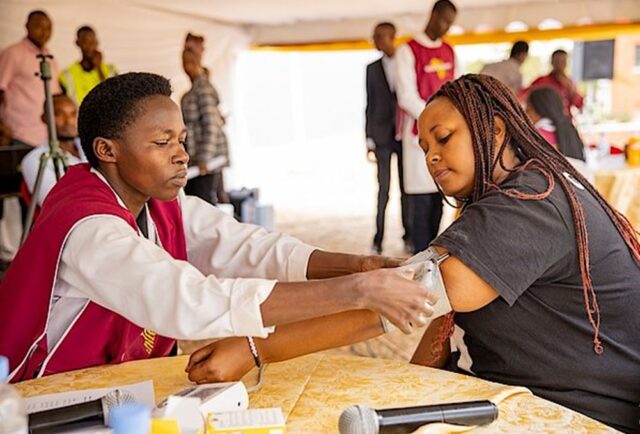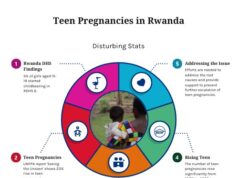
By UML and KB
NCDs are a major health problem in Rwanda. The age-standardized mortality rate across four major Non Communicable diseases NCDs, (Cardiovascular Disease, Chronic Respiratory Disease, Cancer and Diabetes) was 695 per 100,000 in males and 609 in females in 2021.
The country has a high burden of both communicable (such as malaria, tuberculosis, HIV/AIDS) and non-communicable disease (NCDs). The latter was estimated to have caused 50% of deaths in 2019. The epidemiological transition in the country has been incorporated into Rwanda’s fourth Health Sector Strategy plan (2018-2024), which reflects the increase in population and life expectancy, as well as the anticipated increase of the health needs of older people, particularly for NCDs.
Non-communicable diseases NCDs are a major health problem in Rwanda. The age-standardized mortality rate across four major NCDs (Cardiovascular Disease, Chronic Respiratory Disease, Cancer and Diabetes) was 695 per 100,000 in males and 609 in females in 2021. Rwanda has implemented efforts on the NCD progress indicators related to NCD policy and plan, NCD guidelines, tobacco taxes, tobacco media campaign, alcohol advertising restrictions and trans-fat policies, but progress has been more limited on indicators related to tobacco (smoke free/pollution and advertising ban), alcohol taxes, salt policies, marketing to children and physical activity awareness.
Dr. Francois UWINKINDI, Division Manager, Non Communicable Diseases at Rwanda Biomedical center (RBC) says; “The main challenge lies at the community level where low habit of routine health check-ups do not facilitate the health system in detecting and treating NCDs at the earlier stages. This habit originates from a health system that underwent major reforms at a time when infectious diseases were the most pressing healthcare challenge.”
During that time, most health systems in resource-limited countries were designed to address infectious diseases mostly in hospital-centered environment and major investments from PEPFAR and the Global Fund were made to educate communities and health care providers on alarming symptoms such as fever, pain, diarrhea, vomiting, headache and many other acute infectious disease signs. With most NCDs however, challenges lie in fact that patients have no symptoms until the diseases have progressed to late stages and that is why clinicians call these diseases “silent killers” but every twice a month during car free day event we sensitize people to come for free medical checkup for NCDs and advise them on maintaining a healthy lifestyle by reducing alcohol consumption and weight loss by doing sports regularly. Dr. Francis Uwinkindi adds.

Worldwide, seven out of the 10 top causes of deaths are from non-communicable diseases (NCDs). Each year, 41 million deaths, accounting for 71% of all deaths globally, are due to NCDs. In resource-limited countries, NCDs account for 85% of all premature deaths for people aged between 30-69 years. In Rwanda, NCDs account for 44% of all deaths. The estimated cost of treatment and productivity loss associated with NCDs in middle and low-income countries is estimated to be $7 trillion between 2011 and 2025.













